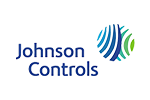Recordkeeping and disclosure
Creating and maintaining accurate records and accountsHow we win
Why we put values first
As a publicly traded company, Johnson Controls is required to maintain and disclose accurate financial records. While a legal obligation, proper recordkeeping is also essential to efficient and profitable business operations. We all have a part to play in keeping records accurate and current; it helps us maintain the trust and confidence we’ve built with customers, investors and other stakeholders.


What winning looks like
We maintain accurate records and accounts by:
- Recording all assets, liabilities, revenues, expenses and business transactions completely, accurately, in the proper period and in a timely manner
- Ensuring that records and accounts conform to generally accepted accounting principles and our internal controls system
- Never setting up secret or unrecorded cash funds or other assets or liabilities
- Using appropriate and accurate wording when creating records
- Never concealing or destroying documents or records that are subject to investigation or may be needed in legal proceedings
- Complying with legal hold notices
- Maintaining and eliminating Company records in compliance with our records retention and information management procedures
Think first
Q:
I’m aware that our records management policies call for us to delete certain records after a designated amount of time. I’ve been keeping all my records on one particular matter because I know there were problems locating documents in the past. Is this a good idea?






